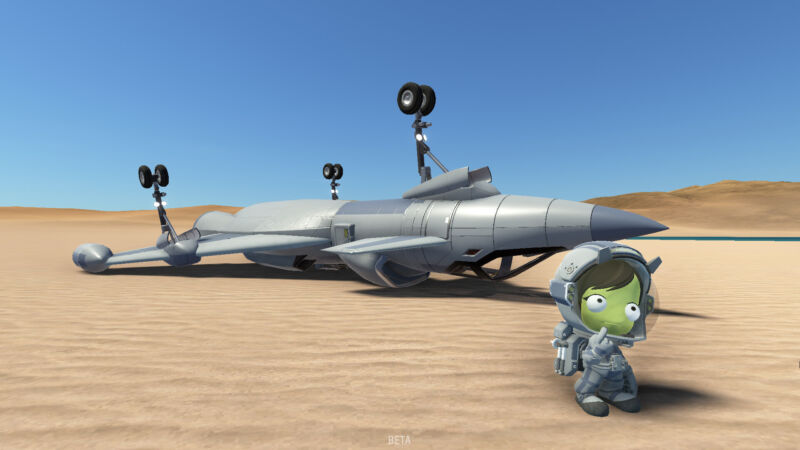Devs say a hotfix is incoming for the code, if not for the early access vibes.

When it comes to early access games, the only thing harder than code and quality assurance may be setting expectations.
Kerbal Space Program 2 was initially announced for 2020, then, after a whole bunch of development shifts, arrived in early access in February 2023—a bit too early, as suggested by player feedback. There were complaints about missing features and missing tutorials, but now there’s an issue with having too much of something: Windows registry entries.
As detailed in a bug report, Kerbal Space Program 2 (KSP2) drops lots and lots of “PqsObjectState” entries into the Windows registry. The initial bug report offers a 322MB text file of them, to the point that the game started throwing “PlayerPrefsException” errors and refusing to load. The issue seems to be with how the game is using the Unity engine’s PlayerPrefs game preference storing system.
The unofficial workaround is simple and dangerous, as longtime Windows fiddlers know all too well. You can delete all of the entries from Intercept Games’ folder using regedit and KSP2 should load again. But messing with entries in regedit always entails a certain amount of risk, as the wrong move could break a feature, an application, or an entire OS. Generally, program users should not be sent into the Windows registry to make a program work properly.
The forum post bug report showed up on Saturday. A KSP2 developer posted Monday morning in the Steam forums that the team had a fix being tested and was “aiming for a hotfix.” A community manager at the KSP2 forums posted much the same Monday afternoon, adding that “we see this as critical.” That manager updated the post on Tuesday to note the fix was due “in the coming days.”Advertisement
Discussion on Reddit, Steam, and elsewhere differs on the severity of the issue, with speculation that the developers simply set the wrong kind of variable for preferences, leading to the windfall of Registry entries. While there’s heated debate about whether a stuffed registry can contribute to game performance issues or wider system problems, beyond a few hundred MB of chewed-up space, there is one broad point of agreement: It’s a bad look for a game already viewed as having been offered up too early, even with a prominent Early Access label.
Ars reached out to Take-Two Interactive, parent company of both publisher Private Division and developer Intercept Games, and will update this post with new information.
The original Kerbal Space Program was one of the launch titles offered under Steam’s Early Access debut in March 2013. Around that time, Valve warned buyers that they should only purchase a title in Early Access if they were “excited about playing it in its current state” because the game could—like crowdfunded products—potentially never arrive in finished form. The arrival could also be quite slow. A study on Steam Early Access games 20 months after the program’s debut found that less than 25 percent of them had launched.
But Early Access on Steam, and early access in general, only grew from there. The range of what you could call early access grew, as AAA publishers started bundling beta or release candidate access to games into pre-orders. Press outlets, including Ars, could opine about a game’s shape while it was still in early access, while casually mentioning that the game could change significantly. Kerbal Space Program benefited greatly from early access, though, building momentum among early testers, garnering feedback for its then-tiny development team, and baking over a very long period before release. Since being purchased by Take-Two and having development shifted to that publisher’s own team, that has not been the case for KSP2.
Steam, among other platforms, continues to let customers review early access games. Kerbal Space Program is aggregated for all reviews as “Overwhelmingly Positive,” while KSP2 is “Mixed” for all reviews, and “Mostly Negative” for 342 recent reviews, as of this writing. We will see whether this kind of feedback helps shape the game for its final release.




